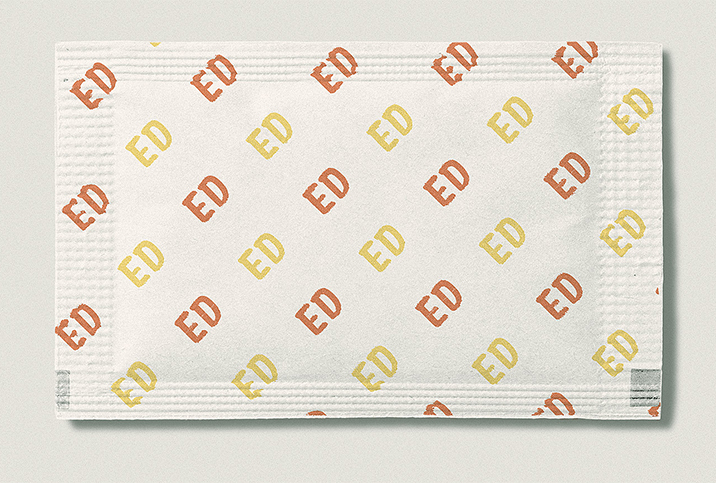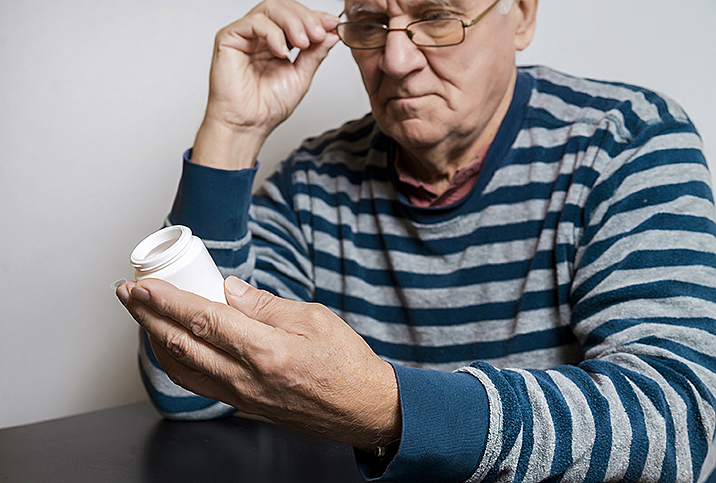Treatment of Diabetes and ED

Diabetes is a health condition sometimes referred to as high blood sugar. The most common type of diabetes is type 2, which is a metabolic problem. Both type 1 and type 2 diabetes can lead to symptoms of erectile dysfunction (ED)or the inability to regularly achieve and maintain erections.
The pancreas produces a hormone called insulin, which helps blood sugar move into cells to produce energy. When cells become insulin-resistant, glucose builds up in the bloodstream and can cause damage to blood vessels and nerves. Since blood supply to the penis is essential to achieving an erection for sexual performance, damage to the small blood vessels can increase the potential for ED.
An overview of diabetes and ED
In 2018, approximately 34.2 million people in the United States had diabetes, according to the American Diabetes Association. Diabetes is the seventh-leading cause of death, the Centers for Disease Control and Prevention (CDC) reports. In 2017, the total cost of healthcare and productivity losses related to diabetes was $327 billion. The average medical costs for people with diabetes were 2.3 times higher than for those without diabetes.
Before 2000, erectile dysfunction was a generally overlooked complicationof diabetes. Over long periods, even slight increases in blood glucose can damage blood vessels. Vascular damage is the most serious complication of diabetes, and damage to the blood vessels in the penis may lead to ED. The risk of erectile dysfunction is three timesgreater for men with diabetes than for men without it.
Diagnosis and when to see a doctor
A diagnosis of erectile dysfunctioncan be difficult to accept and talk about. However, ignoring the issue may increase the risk of further damage and minimize the effectiveness of simple solutions.
If you have a diagnosis of diabetes, talk to the doctor about your chances of developing ED. Early conversations with your healthcare provider can present options to help reduce your risk for ED. If you have symptoms of erectile dysfunction, addressing the complications early may improve your odds of finding a solution.
A urologist is a doctor who can diagnose and help treat erectile dysfunction. The urologist will likely review your medical and sexual history to confirm the presence and extent of ED. For example, they may ask if you can maintain an erection during intercourse and how often you find intercourse satisfying.
During a physical examination, the urologist will look for body hair growth or breast enlargement, indicating a hormonal problem. Your blood pressure and pulses in your wrists and ankles could indicate problems with circulation.
Medical treatment for ED
In some cases, medication for other health conditions can cause ED. Your doctor may suggest changing medications or trying a different dose to reduce your symptoms. Never stop taking medication without discussing the risks and benefits with your doctor.
The most popular types of oral medication to treat erectile dysfunction fall into the category of phosphodiesterase type 5 (PDE5) inhibitors. These drugs raise blood flowto your penis, which triggers engorgement and an erection. The most common ones in this drug class are Viagra, Levitra and Cialis. Each of these drugs requires sexual stimulation to trigger an erection.
Blood tests may reveal low testosteronelevels. Your physician will likely discuss the benefits and risks of using testosterone replacement therapyto treat erectile dysfunction. Testosterone may improve symptoms from damaged blood vessels or neurological problems.
Alprostadil is another type of medication that helps improve blood flow. It relaxes the blood vessels and muscles, which helps improve blood flow to the penis. The medication is injected directly into the penis immediately before sex. Some men use an alprostadil pellet inserted into the opening of the penis, called the urethra.
Surgical treatment for ED
When any of the above treatments are not successful, you have other options. Surgical implants or penile devices may be the only ones for men who have had physical trauma or prior surgery to the pelvic area. Medical conditions, such as cancer or diabetes, may also necessitate surgical options. But early treatmentfor men with diabetes reduces the potential need for surgery.
Vacuum erection device
These external devices are also called vacuum constriction devices. There are no systemic side effects. Some men experience compromised ejaculation or discomfort. The external device uses vacuum action to pull blood into the penis until an erection develops. A small band is then slipped onto the penis near the base to hold the blood in place during sex. The band can stay in place for up to 30 minutes.
Penile prosthesis
A vacuum device does not allow for spontaneity, but an implanted prosthesis does. These are effective in men who have vascular disease, spinal cord injuries or diabetes. The two types of available implants do not change sensation or negatively affect orgasm or ejaculation.
Malleable implants are mechanical devices that keep the penis in a permanent state of firmness. The surgery is an outpatient procedure. You should avoid sexual activity for at least six weeks as the incisions heal. Since the device keeps the penis in a firm state, it's more detectable under clothing.
The second type of implantable device is inflatable. The surgeon implants the pump in the scrotum. Pressing the pump before sex allows fluid to flow into the prosthesis, which causes an erection. The procedure requires six weeks of recovery and no sexual activity during that time. Most men go home the day of surgery.
Microsurgical penile revascularization
A lesion in the blood vessel may block blood flow to the penis. This procedure addresses the condition similar to heart bypass surgery. The surgeon uses a donor artery from the leg to bypass the damaged area in the other artery. Men who have atherosclerosis, or hardening of the arteries, are not candidates for microsurgical penile revascularization because this health condition leads to permanent and generalized damage to the blood vessels supplying the penis.
Alternative treatments for ED
Men with diabetes have alternative treatment options they can try to help relieve symptoms of erectile dysfunction. Before attempting treatments at home, it's essential to get a physical examination and discuss the potential risks associated with using any alternative treatment with your doctor. ED may be a complication of diabetes but is associated with other medical conditions as well.
While some studies have indicated that herbal supplements such as panax ginseng, Rhodiola rosea, citrulline, L-arginine and others may be able to improve ED symptoms, these supplements are not recommended by urologists for the treatment of ED and are not approved by the Food and Drug Administration. Always consult your doctor before using any type of supplement.
Lifestyle choices for treatment of ED
Several lifestyle choices can help reduce the complications from diabetes and improve your sexual function. Since high blood sugar damages blood vessels, it's important to keep your blood sugar under control. In many cases, this can be accomplished through dietary changes and exercise.
Consider eliminating smoking, recreational drugs and excessive alcohol use to improve your sexual satisfaction. Nitric oxide plays a significant role in relaxing blood vessels and improving blood flow. You can increase production naturally through high-intensity interval training (HITT) exercises. Beets, broccoli and citrus fruits are other foods that help boost nitric oxideproduction.
Prevention of diabetes and ED
Practicing a healthy lifestyle goes a long way toward reducing your potential risk for diabetes or erectile dysfunction. Many of the same diet and exercise strategies that help maintain normal blood sugar also help reduce your risk of ED.
The Centers for Disease Control and Prevention (CDC)recommends at least 150 minutes per week of cardiovascular activity. In addition, include at least two days a week of muscle-strengthening activities.
No matter how much exercise you get, you cannot out-exercise a bad diet. Steer clear of processed foods and those high in carbohydrates. Instead, eat whole foods and ones you prepare at home. Fruits and vegetables are high in vitamins and minerals your body requires to maintain optimal health. Drink plenty of water each day to stay hydrated, and don't forget to get at least eight hours of sleep a night.
No matter how you approach your treatment for both diabetes and ED, be sure to consult a doctor or medical professional throughout your process.


















